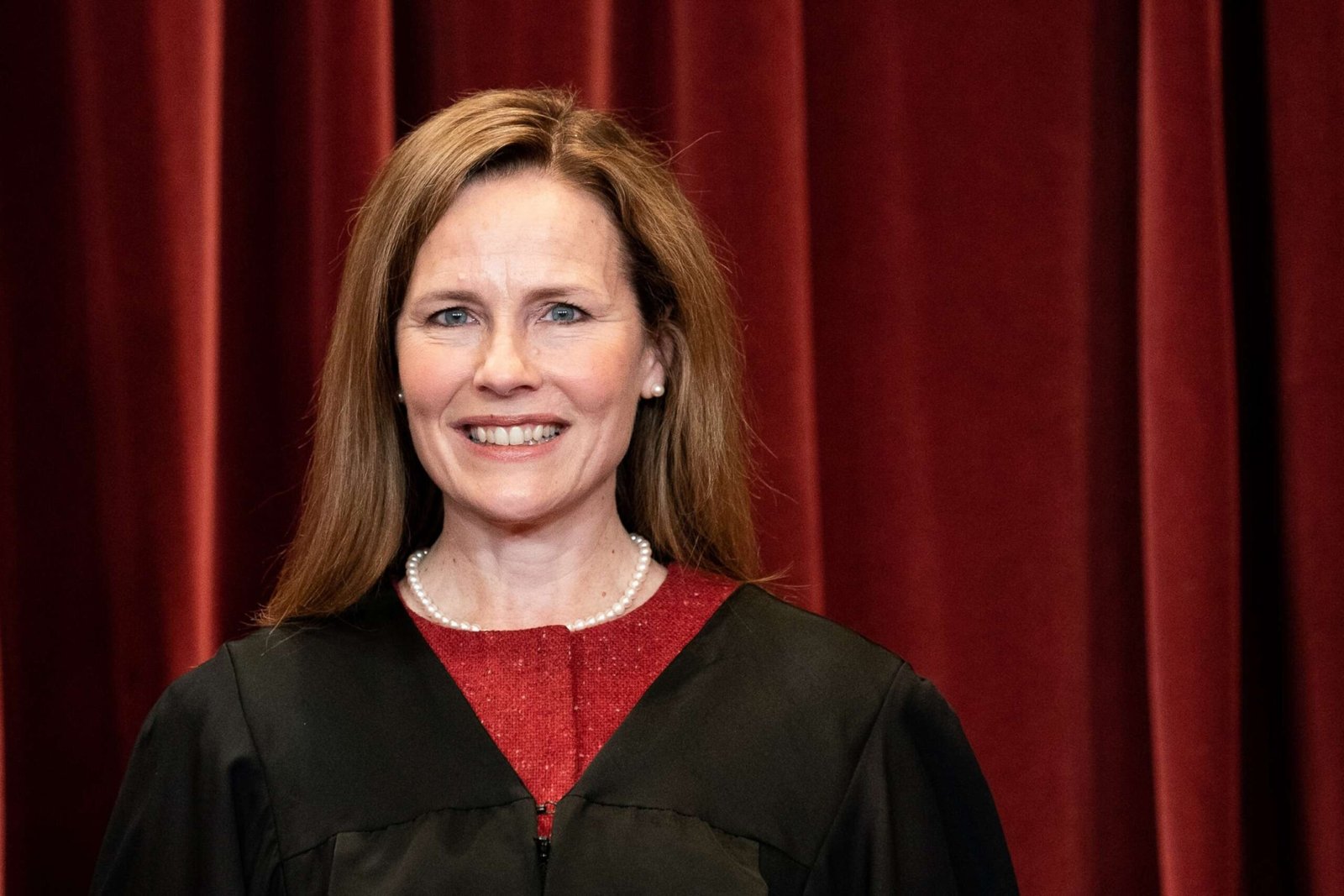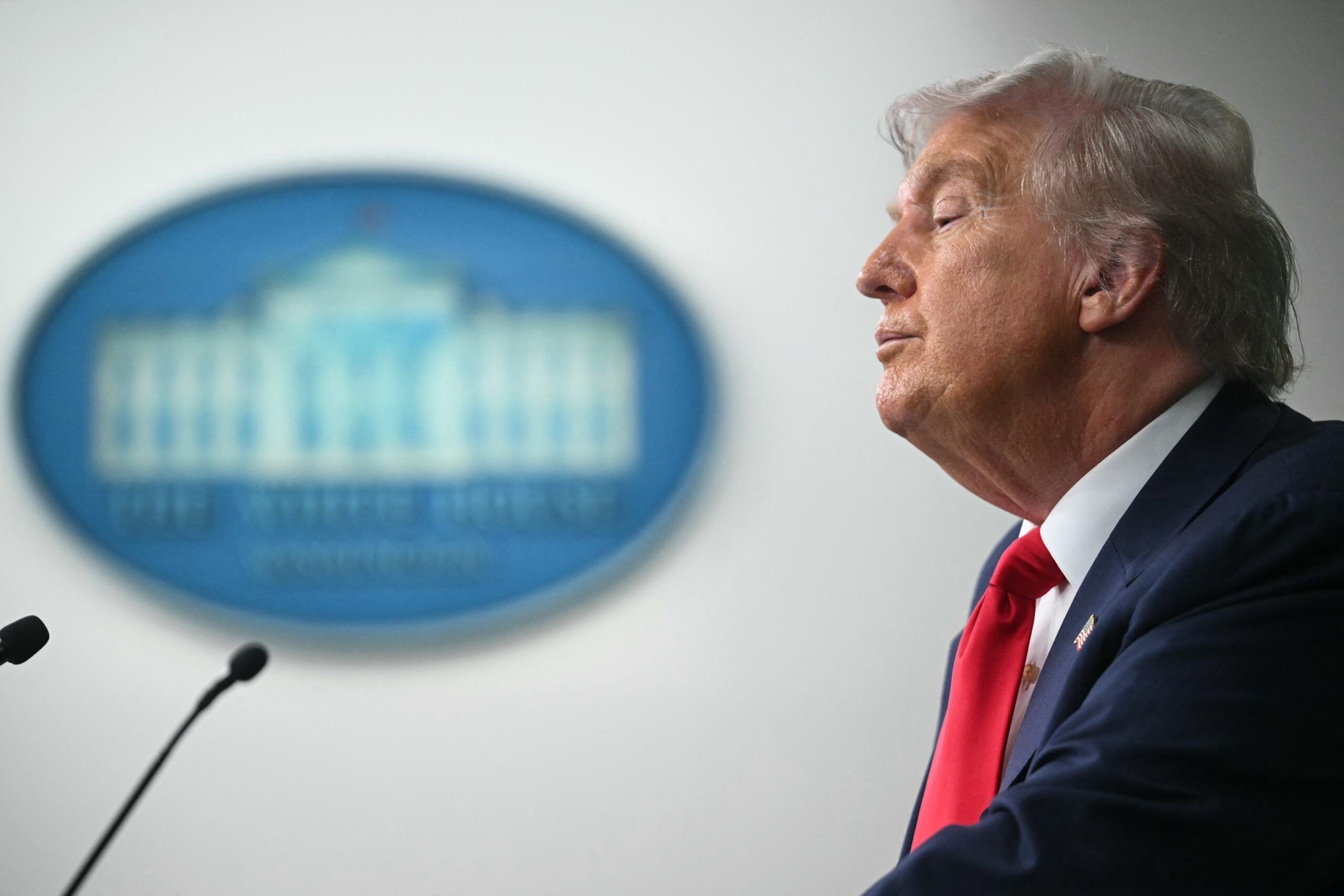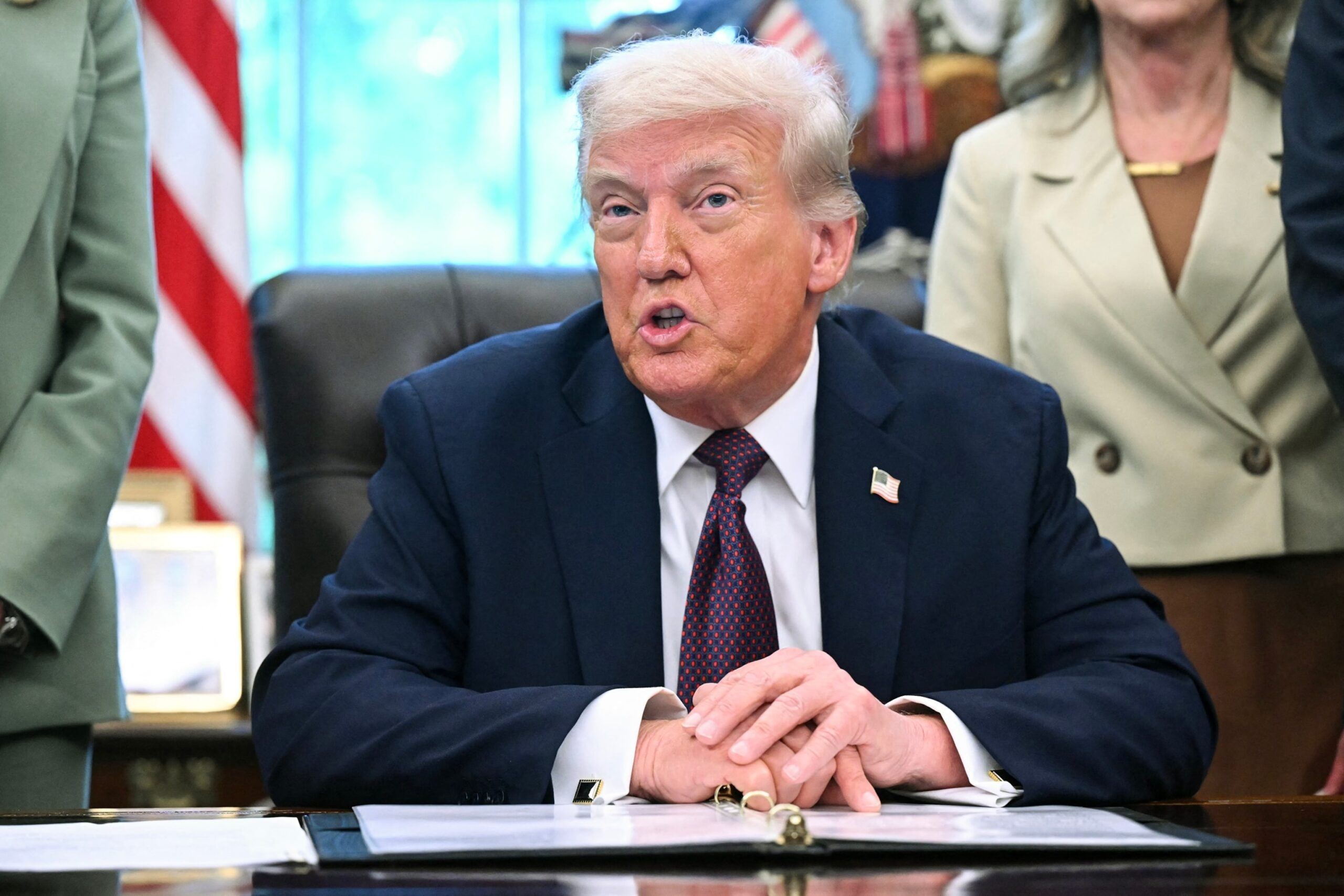Scotus limits precautionary measures throughout the country, partial victory for Trump in the citizenship of birth rights

The Supreme Court on Friday granted a partial suspension of national expensive issued against the executive order of President Donald Trump to end the citizenship of birth law effectively, giving Trump a victory in the midst of his confrontation with federal judges who have blocked parts of his second -mandate agenda.
He 6-3 opinion Wine from Judge Amy Coney Barrett. The three liberal judges of the Dissentted Court.
The court, however, said that it was not deciding whether Trump’s executive order was constitutional, instead of focusing on whether a single judge has the authority to issue universal precautionary measures.
“Government requests are granted for partial stays of preliminary mandates, but only to the extent that the mandates are broader than necessary to provide a complete relief to each position plaintiff to sue,” reads the opinion.

On April 23, 2021, file photo, associated judge Amy Coney Barrett is found during a group photo of the judges in the Supreme Court of Washington, DC
Pool/Getty Images, file
Trump took a return of the victory in a rare appearance in the Information Room of the White House shortly after the decision.
“Incredible decision, one of which we are very happy,” Trump told reporters.
“This morning, the Supreme Court has delivered a monumental victory for the Constitution, the separation of the powers and the rule of law in the excessive use of national mandates to interfere with the normal functioning of the executive branch,” he said.

President Donald Trump speaks together with the Attorney General Pam Bondi and the attached attorney general Todd Blanche during a press conference in the Brady Brady Room of the White House, on June 27, 2025, in Washington.
Jacquelyn Martin/AP
However, legal challenges will continue until the order of Trump 1 to deny citizens to children born on American land to illegal immigrants or those with a temporary immigrant status, since the court did not rule on the merits of the cases.
Individual plaintiffs in these cases remain protected by the precautionary measures issued.
“Prohibit the application of the executive order against the son of a pregnant claims individual will give that plaintiff a total relief: his son will not be denied the citizenship,” said Barrett. “Extending the court order to cover all other individuals located similarly would not make their relief more complete.”
However, Trump can advance immediately, with the development of plans to implement the Birth Law Citizenship, which will not enter into force for 30 days.
Friday’s decision is an impulse for Trump in his crusade against the national mandates that have blocked some of the executive actions that he has taken so far in his second term.
The supporters of the national mandates say that they serve as an essential verification for potentially illegal behavior and avoid generalized damage. Critics say that they give too much authority to individual judges and encourage the plaintiffs to attempt to evade the random assignment and the presentation in jurisdictions with judges who can sympathize with their point of view.

The United States Supreme Court building is seen before the judges are expected to issue opinions in pending cases, in Washington, on June 14, 2024.
Elizabeth Frantz/Reuters
Judge Sonia Sotomayor read her scoring dissent aloud from the bank, criticizing the majority of the court.
“No right is sure in the new legal regime created by the court,” Sotomayor wrote. “Today, the threat is for the citizenship of birth law. Tomorrow, a different administration can try to seize the firearms of legitimate citizens or prevent people of certain religions from gathering to worship.”
“The majority argues that, in the absence of cumbersome collegial action litigation, the courts cannot completely order even so clearly illegal policies unless it is necessary to provide the complete relief of the formal parties,” he added. “That holding company makes significant constitutional guarantees only for any individual other than parts of a demand. Because I will not be complicit in such a serious attack against our law system, I will dissent.”
Sotomayor accused the Trump administration of “games games” and said with this decision of the majority of the Supreme Court “that plays.”
“Each source of conceivable law confirms, the citizenship of birth rights is the law of the land,” he wrote in dissent.
Judge Brett Kavanaugh wrote separately to underline, in his opinion, the narrowness of the decision, insisting that collective action claims are still available and that the Supreme Court itself can and probably review the lower courts on the road with respect to the scope of the relief of an alleged illegal government policy.
Kavanaugh also pointed out that the Administrative Procedures Law remains a route for the plaintiffs to bring challenges to presidential policies nationwide.
The reaction to the ruling was greatly divided into the party lines, and the Republicans called him a victory for the administration, while the Democrats seriously expressed concern that Trump’s actions could go without control.
“The decision of the Supreme Court to limit the courts of its long -standing authority to block illegal executive actions is an unprecedented and terrifying step towards authoritarianism, a serious danger to our democracy and a predictable movement of this extremist Maga Court”, the leader of the minority of the Senate minor defending Chuck Schumer’s defense, in fact, “.







